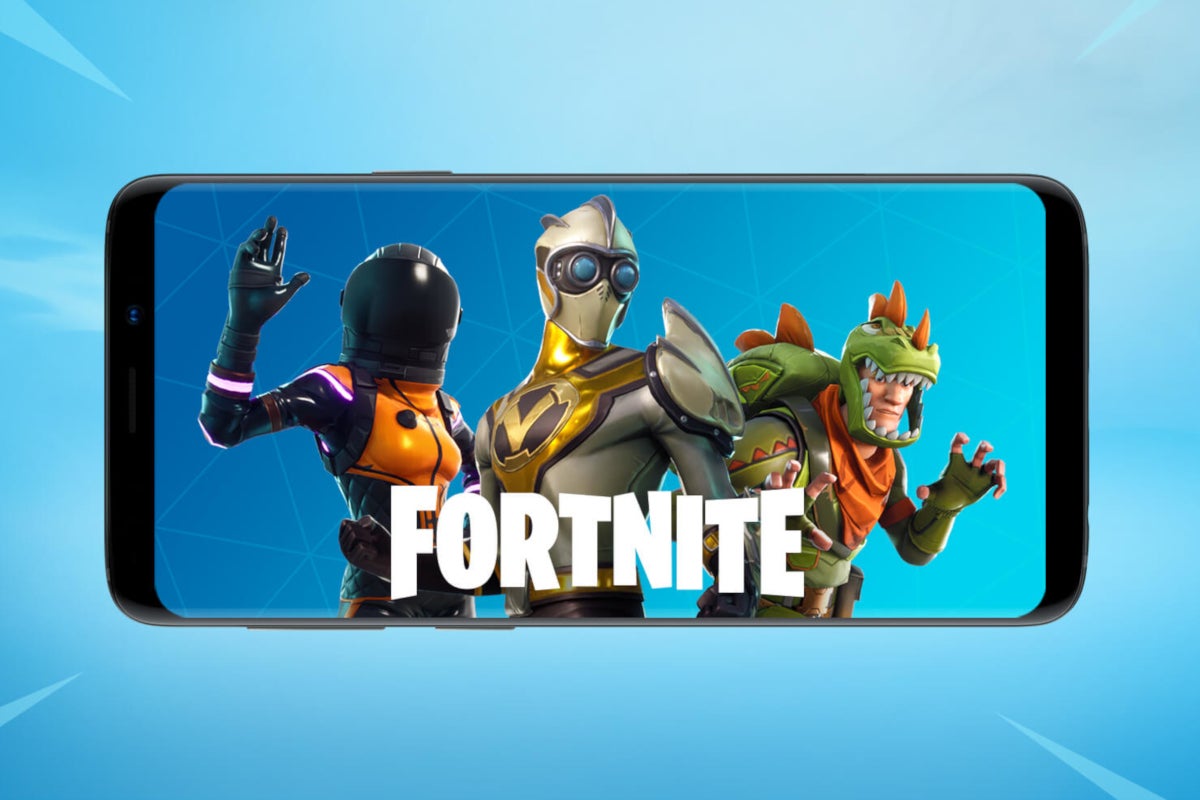Both Epic and Apple land solid blows as the court battle begins

Today was the first day of the court battle between Apple and game developer Epic. The latter sued Apple after the tech giant tossed its red hot Fortnite game out of the App Store. Apple did this after Epic violated Apple's rules and gave its customers access to the developer's own in-app payment platform.
Epic v. Apple law suit kicked off on Monday
Seeking Alpha reports that during Epic's opening statement, the developer explained that Apple has made iOS "a walled garden" which not only blocks competition but also makes it harder for iPhone users to switch to Android. And speaking of anti-competitive behavior, Epic says that Apple's demand that apps offering in-app purchases use its payment platform violates federal anti-trust laws. Apple collects 30% of in-app purchases and at the same time it is forcing developers to run in-app payments through its platform.

Apple removed Fortnite from the App Store after Epic broke Apple's rules about in-app payments
Other companies who have complained about the so-called Apple Tax include Netflix and Spotify. The latter brought its argument to the European Union a couple of years ago saying that thanks to the 30% Apple Tax, Apple Music has an advantage over Spotify and other streaming music apps that have to cough up the additional 30% that Apple Music doesn't have to pay.
Epic says that requiring third-party apps to sell their wares through the App Store and forcing them to tack on 30% for processing in-app payments is actually a violation of federal antitrust law that prohibits companies from tying a product or service to the sale of another. Epic attorney Katherine Forrest's highlight phrase of the day: "When they pick up the iPhone, users enter a different world. They are locked into a closed platform where they can only download apps from Apple, and each and every time they purchase in the app, a 30% tax is imposed."
Epic also refuted Apple's claims that the rules Apple created for the App Store help it maintain the quality and security of iOS apps. This is a claim that Apple has made before.

Both Epic and Apple made some good points on the first day of the trial
In its opening arguments, Apple stated that its 30% fee is in line with industry standards and that allowing apps like Fortnite to side-load its own in-app platforms could lead to security issues. Where Apple might have scored points with the judge is when it noted that Epic never informed Apple about its in-app payment system until the day it launched while Microsoft was given advanced notice.
Apple Attorney Karen Dunn said during Monday's court session that "A $20 billion company has decided that it doesn’t want to pay for Apple’s innovations anymore. So Epic is here, demanding that this court force Apple to get into its App Store untested and untrusted apps — something that Apple has never done."
In giving the court reasons why Epic can't win the case, Apple claims that the games developer is using the incorrect version in its antitrust claim. Apple states that Epic is unable to show anti-competitive behavior on the part of Apple and the latter says that it can show pro-competitive justifications.
Apple also mentioned that the appeals court that sided with Qualcomm in its case against the FTC, a case that the FTC decided not to take back to the Supreme Court, ruled that "while anticompetitive behavior is illegal, hypercompetitive behavior is not." Apple obviously believes its actions are in the latter category.
Epic's CEO Tim Sweeney took the stand today and said that Epic isn't asking for Apple to eliminate the compensation it receives from in-app purchases. But he pointed out that the Apple Tax can result in Apple making more money from an app than the app's own developers.
While Apple has been trying to show that there are plenty of other app stores that Fortnite can be listed in, Epic's top executive said that Fortnite is more than a game. He called Fortnite a "phenomenon that transcends gaming" and a "social and entertainment experience that includes a variety of gaming experiences and non-gaming experiences within it." This means that such a title needs a top app storefront like Apple's App Store to help promote it.
While Apple's App Store takes as much as a 30% cut of in-app purchases, Epic's own app store grabs a 12% cut and is "hundreds of millions of dollars short of being profitable." Sweeney says that Epic's app store could turn profitable some time over the next two to three years.
Follow us on Google News













Things that are NOT allowed:
To help keep our community safe and free from spam, we apply temporary limits to newly created accounts: